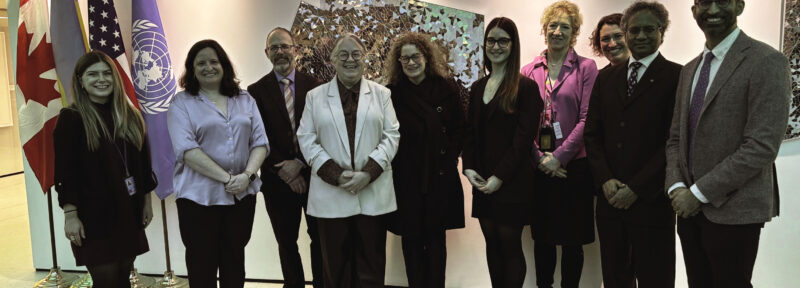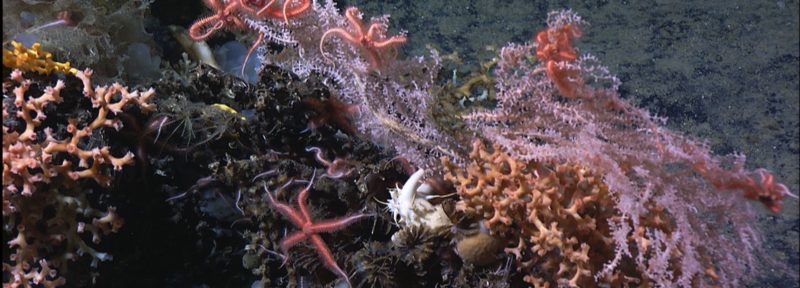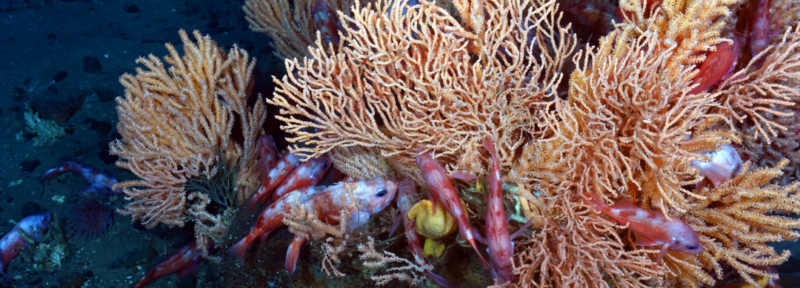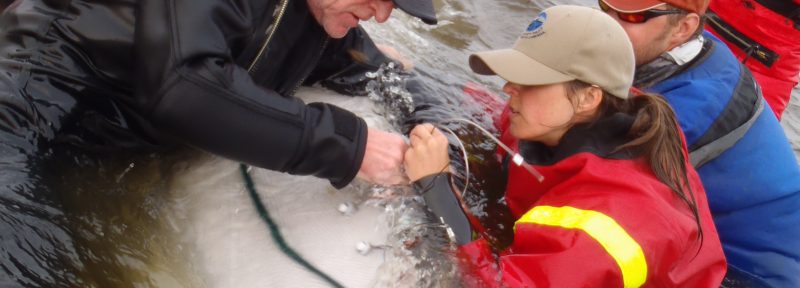What’s Happening with International Negotiations on Deep-Sea Mining?
Deep-sea species are at risk from emerging mining activities.
Credit: Alexander Semenov
Nicole Zanesco, international policy advisor with Oceans North, is attending a meeting of the International Seabed Authority from March 18-29th in Kingston, Jamaica. Countries and civil society groups from around the world are discussing whether—and how—to proceed with a new industry that could have serious impacts on marine ecosystems around the world.
At the opening of the meeting, she led an intervention on behalf of the Deep Sea Conservation Coalition, part of which is excerpted here:
Since we last met in November 2023, the largest known deep sea coral reef community was discovered off the East Coast of the United States. Mere miles away, a long-lost mining test site from the 1970s was rediscovered, and scientists found that, even 50 years after test mining finished, there was no recovery. New coral reefs and seamounts were also found near the Galapagos, teeming with life, some of which is found nowhere else.
It’s not just those of us invested in the deep sea, like everyone here in this room, who are learning more about its rich and varied ecosystems every day. The world at large is learning about the deep sea—and they are taking action. Over 3 million people around the world have petitioned for a moratorium, and companies, civil society, Indigenous groups, grassroots movements, and states are asking for us to be responsible stewards of the common heritage of humankind.
We caught up with Nicole to learn more about the major players at this meeting and what’s at stake.
Q: What is the International Seabed Authority (ISA) and why is it important?
A: The ISA is an implementing agreement established under the United Nations Convention on the Law of the Sea (UNCLOS). The ISA is responsible for managing the international seabed for “the benefit of all humankind,” balancing any future mining of minerals with the protection of the marine environment. That includes negotiating regulations, standards, and guidelines for the management of seabed resources.
Q: Who supports deep-sea mining and why? Who is opposed?
A: Representatives from companies interested in deep-sea mining have argued that they need to extract so-called “critical minerals,” such as cobalt, nickel, copper, and manganese, to assist in the transition to green energy. But the green energy economy is actually moving away from using those minerals and investing in new battery chemistries. In the last six months, pro-mining advocates have pivoted to a security argument, saying the U.S. and its allies need to secure mineral sources not monopolized by non-friendly countries. There is also interest in using the minerals for defense technology. However, the U.S. has not ratified UNCLOS, which limits their ability to mine the international seabed and engage substantively in the ISA negotiations.
We believe that the driving force behind deep-sea mining is corporate profit and that the risks of causing irreversible harm to the marine environment far outweigh any benefits. Twenty-five countries, dozens of companies (including Google and BMW), over 100 civil society groups, and 800 scientists have called for a moratorium on deep-sea mining.
Q: What are the major unresolved issues at this meeting?
A: The ISA has been meeting three times a year since 2021, when the Republic of Nauru, a small Pacific country that partnered with a Canadian mining company, triggered the “two-year rule.” That required an accelerated two-year process of drafting regulations, standards, and guidelines for deep-sea mining. Last year, the process was extended after the rule expired.
The negotiations have been very intense since 2021, and there’s still a great deal of uncertainty around the draft regulations. There are a lot of problems and many outstanding issues to be resolved. For example, we don’t have agreement on financial compensation for resource extraction or a structure for inspection, compliance, or enforcement of deep-sea mining regulations. We don’t have robust environmental regulations or enough baseline knowledge about the current ecosystem. More broadly, ISA member countries have failed to clarify if the draft regulations under negotiation apply only to one type of mining or all mining, yet the financial mechanism being negotiated is focused on mining polymetallic nodules. There is a great deal of confusion over what is being negotiated and what the ramifications will be. There is also no consensus on the draft regulations and, in keeping with UNCLOS, the adoption of a Mining Code must be by consensus.
Q: What are you hoping to accomplish at this meeting?
A: What we’re hoping will happen at this meeting is that more countries will advocate for a precautionary pause or moratorium and take a stand against deep-sea mining. We’re glad so many more people are engaging in this important issue, even if the deep sea is often out of sight for many. There is an increasing level of support for not rushing headlong into a new, untested industry that could harm our marine ecosystem, particularly in an area where scientists continue to discover new species and are still learning about the role of the deep sea in climate processes.
Ruth Teichroeb is a regular contributor to Oceans North and is former communications director. She is based in Sidney, B.C.





